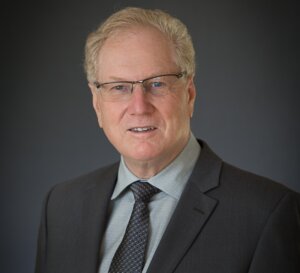
Glenn Sigurdson’s appointment to the Order of Canada in 2020 describes him as a social innovator who has devoted his career to resolving complex multilateral disputes involving people and resources — esteemed for his ability to forge relationships particularly between Indigenous and non- indigenous people.
Throughout his career, Glenn has worked resolving problems across Canada and beyond from fish to forests, mines to gas wells, pipelines to power lines. In these disputes, companies, communities, labour unions, and non-governmental agencies are deeply vested in pursuing their own interests, while indigenous nations are deeply vested in asserting their rights.
“I think my role is best described as the man in the middle working within and between people and organizations,” he says.
Glenn has been called a mediator, negotiator, facilitator, consultant, teacher, writer and speaker, or, as he likes to humorously put it, “a man in search of a title.”
“The values and influences I learned as a boy growing up in a legendary fishing family on Lake Winnipeg have been foundational to my career,” he adds. “Fishing was a complicated business, from indigenous and Icelandic fishermen on the lake, to suppliers in Winnipeg, to markets in Chicago and New York. The way my dad interacted with so many different people and places taught me so much about the importance of listening and understanding, about the value of respect. And as a family business for more than a century, work came home, and home came to work. “
In his 2014 memoir, Vikings on a Prairie Ocean, he brings to life the people, places and history of the early Icelandic settlers in Canada driven from their homeland by volcanic ash and desperate poverty. In a little-known slice of Canadian history, in 1875 the New Iceland colony were granted an “Icelandic Reserve “with self-governing powers stretching some 130 kilometres along the shores of Lake Winnipeg from Selkirk to Hecla Island. Sheep herders would need to become fishermen to survive and prosper. His great grandfather was a renowned leader
Glenn grew up in Riverton, graduated with a degree In Economics (Hons) from the University of Manitoba in 1968. A short stint in a PhD program at McGill was enough to decide that an academic career was not for him. The next years saw him at Osgoode Hall Law School in Toronto, returning to Winnipeg to practice law in 1972. In 1979 he would become a founding partner of Taylor McCaffery one of Manitoba’s pre-eminent law firms today, where he built a distinguished career becoming a Q.C. in 1986.
He did not know it then, but his career would start evolving in new ways in 1973 when he became counsel to 12,000 Cree people in six communities impacted by hydro developments in Northern Manitoba, and in the early 1980s to the Ojibway people affected by mercury pollution in Northern Ontario.
“These complex resource-based cases could never be sufficiently resolved for all parties inside a legal framework. My focus had to shift to building negotiation based processes for problems, not force fitting problems into processes.”
He became active in the growing dispute-resolution community in the U.S.
“Vancouver offered more opportunities, and I would be closer to Dr. Gerald Cormick, who was doing pioneering work based in Seattle, a fellow Canadian, a mentor, and later partner,” he recalls.
In 1989, he made the difficult decision to move to Vancouver with his wife, Maureen and their two children.
“People thought I was nuts leaving my thriving practice” he laughs adding “Vancouver has been good to me.”
Glenn joined TCC in 1995 at the suggestion of a close friend. He greatly appreciates it as a place to go, entertain people, and have a meeting, all the more so in the past four years as Honorary Consul General to Iceland in BC.
“The staff has always been so gracious. The TCC is my downtown office without the office expenses. Everybody has their personal purpose for the club, that is mine.”

